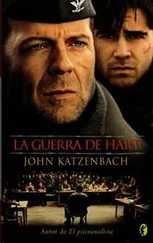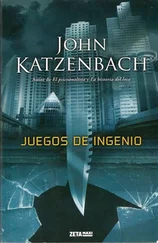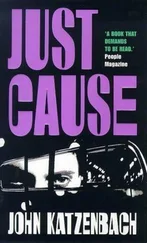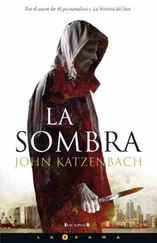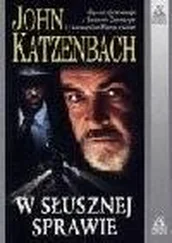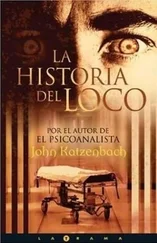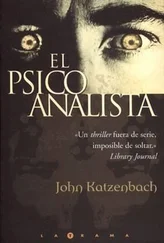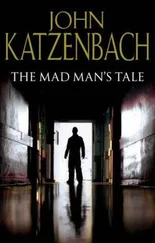As she started to eye the document, he started to speak, figuring that she wouldn’t really be able to concentrate on what was written while he spoke. Distracting her from asking questions of him didn’t seem like a difficult chore. “You see, Mrs… Collins, correct? The parish is really trying to reach out to anyone who might be a marrow donor for this youngster who is related to you distantly. You see the problem? I’d ask you to take the blood screening test, but I suspect you’re beyond the age where marrow can be donated. You’re over sixty, correct?”
Ricky had no idea whether bone marrow ceased being viable at any age. So he made up a phony question where the answer was obvious. The woman lifted her eyes from the letter to respond, and Ricky reached out and took it from her hands, well before she’d had the opportunity to digest all of it. He said, as he did so, “This has a lot of medical stuff in it. I can explain, if you’d prefer. Perhaps we could sit down?”
The woman nodded reluctantly and held the door open for him. He stepped into a house that seemed as fragile as the old woman who lived there. It was filled with small china objects and figurines, empty vases and knickknacks, and had a musty aged smell that overcame the stale air of the air conditioner pumping away with a banging sound that made him think some part was loose inside. The carpets had plastic runners and the couch, as well, had a plastic cover, as if the woman were afraid of any dirt that might be left behind. He had the impression that everything had a proper position in the house, and that the woman who lived there would be able to sense instantly any item that had shifted position even a fraction of an inch.
The sofa made a squeak as he sat.
“Your son, is he available? You see, he might be a match…,” Ricky launched ahead, lying easily.
“He’s dead,” the woman said coldly.
“Dead? But how?”
Mrs. Collins shook her head. “Dead to all of us. Dead to me, now. Dead and worthless, nothing but pain, father. I’m sorry.”
“How did he…?”
She shook her head. “Not yet. But soon enough, I’m thinking.”
Ricky leaned back, making the same squeaking sound. “I’m afraid I don’t precisely understand,” he said.
The woman reached down and removed a scrapbook from a shelf beneath a coffee table. She opened it, flipped through several pages. Ricky could see newspaper stories about sports games, and he remembered that Daniel Collins was a high school athlete. There was a graduation picture and then a blank page. She stopped there, and handed it across to him. “Turn the page,” she said bitterly.
Centered on a single sheet of the scrapbook was a single story from the Tampa Tribune . The headline was: man arrested after barroom death. There were few details, other than Daniel Collins had been arrested slightly over a year earlier, and charged with homicide following a fight in a barroom. On the adjacent page, another headline: state to seek death in bar fight slaying. This story, clipped and glued to the middle of another page, had a photograph accompanying it, of a middle-aged Daniel Collins being led handcuffed into a courtroom. Ricky scanned the newspaper clipping. The facts of the case seemed simple enough. There had been a fight between two drunken men. One of them had gone outside and waited for the other to emerge. Knife in hand, according to the state prosecutors. The killer, Daniel Collins, had been arrested at the scene, unconscious, drunk, bloody knife near his hand, victim spread-eagled a few feet away. The victim had been eviscerated in a particularly cruel fashion, the newspaper hinted, before being robbed. It appeared that after Collins had murdered the man and taken his money, he’d paused to swig another bottle of some cheap liquor, become disorientated, and passed out before fleeing the scene. Open and shut.
He read meager stories about a trial and a conviction. Collins had claimed that he was unaware of the killing, so addled with drink that night. It wasn’t much of an explanation and it didn’t work well with the jury. They were out deliberating for only ninety minutes. It took them an additional couple of hours to recommend the death penalty-the same explanation being offered up in mitigation that was ignored. Official death, cut and dried, wrapped up and packaged with a minimum of messiness.
Ricky looked up. The old woman was shaking her head.
“My lovely boy,” she said. “Lost him first to that bitch girl, then to drink, now to death row.”
“Have they set a date?” Ricky asked.
“No,” the woman replied. “His lawyer says they’ve got appeals. Going to try this court, that court. I don’t really understand too well. All I knows is that my boy says he didn’t do it, but it didn’t make no difference.” She stared hard at the clerical collar snug around Ricky’s neck. “In this state, we all love Jesus, and most folks worship on Sundays. But when the Good Book says ‘Thou Shall Not Kill,’ it don’t seem to apply to our courtrooms none. Us and Georgia and Texas. Bad places to do a crime where someone dies, father. I wish my boy’d thought of that before he took up that knife and got into that fight.”
“He says he’s innocent?”
“That’s right. Says he’s got no memory of the fight at all. Says he woke up all covered in blood when the policeman shoved him with their sticks and with that knife by his side. I guess having no recollection isn’t much of a defense.”
Ricky turned the page, but the scrapbook was blank.
“Got to save a page, I guess,” the woman said. “For one last story. I hope I pass before that day arrives, for I do not want to see it come.”
She shook her head. “You know something, father?”
“What’s that?”
“It always made me angry. You know, when he scored that touchdown against South Side High, in the city championship, why, they put his picture right on the front page. But all these stories, over there in Tampa where nobody much knew about my boy at all, why, they were little stories, stuck way inside the paper, where hardly anyone ever saw them. It seems to me that if you’re going to go about taking some man’s life away from him in a court of law, why you ought to make a big deal of it. It ought to be special and right up there on the front page. But it isn’t. It’s just another little story that gets stuck back next to the broken sewer main and the gardening column. It’s like life isn’t all that important anymore.”
She rose and Ricky rose with her.
“Talking about this makes my heart feel filled with sickness, father. And there ain’t no comfort in any words, not even the Good Book, to take the hurt away.”
“I think, my child, that you should open your heart to the goodness that you remember, and that way you will be comforted.” Ricky thought trying to sound like a priest made his words trite and ineffectual, which was more or less how he wanted them. The old woman had raised a boy who was to all outward appearances a proper son of a bitch, he thought, who started out his sorry excuse for life by seducing a classmate, dragging her alongside of him for a few years, then abandoning her and her children when they became inconvenient; and he ended up by killing another man over probably no reason at all, other than one created by too much liquor. If there was anything redeeming about Daniel Collins’s silly, useless existence, he had yet to see it. This cynicism, boiling around inside of him, was more or less confirmed by the words the old woman spoke next.
“The goodness stopped with that girl. When she got pregnant that first time, why, any chance my boy had, just went right away then. She lured him in, used all that woman cunning, trapped him, and then used him to get out of here and away. All the trouble he had, becoming someone, making his way in the world, why, I blame it all on her.”
Читать дальше

